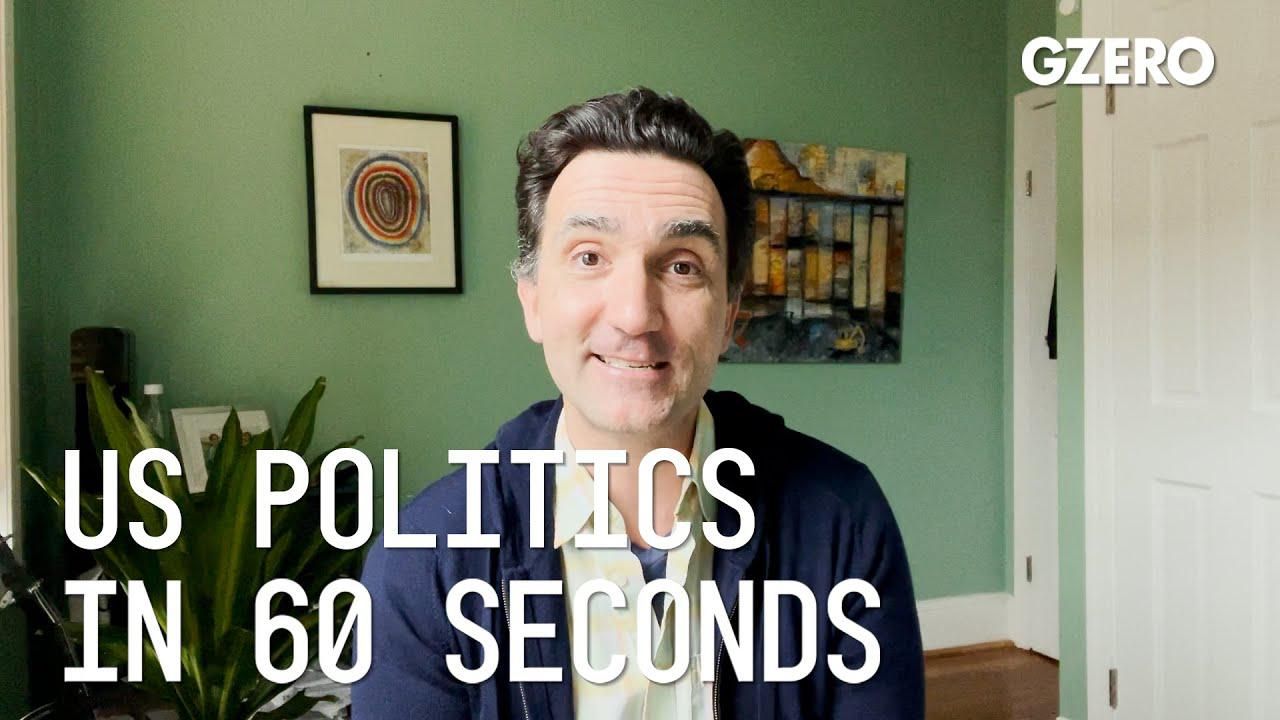US Politics In 60 Seconds
Minimum wage may not go up, but expect stimulus checks in April

Minimum Wage May Not Go Up, But Expect Stimulus Checks In April | US Politics :60 | GZERO Media

Jon Lieber, Managing Director of the United States for the Eurasia Group, shares his insights on US politics in Washington, DC:
Is the minimum wage going to $15 an hour?
Probably not. The House of Representatives did include it in the stimulus bill that they're going to pass as soon as next week, but when it gets over to the Senate it's likely to either be stripped out altogether because of a provision of the reconciliation process known as the Byrd Rule, or you could see some moderate Senate Democrats try to push a compromise measure which would raise the minimum wage from $7.25 an hour to something closer to $10 or $11 an hour.
$15 an hour minimum wage at the federal level was considered unthinkable just five years ago, but since that time you've seen a lot of states and many cities adopt $15 an hour as a minimum wage. However, for a lot of rural areas of the country where wages tend to be lower, $15 an hour is considered quite expensive for a number of small businesses. So, you've got the senator from Arizona, Kyrsten Sinema, and the senator from West Virginia, Joe Manchin, who remain opposed and may try to push a compromise if they can get it through the procedural hurdles.
When will my stimulus check get here?
Probably in mid-April. If you are one of the Americans who's filed your taxes electronically with the IRS, they have your bank account information on file. And as soon as the Biden stimulus plan passes, which we think will happen probably sometime early March, it'll take Treasury a couple of weeks to get the systems up and running, get those checks out the door. You should see a nice little bonus payment in your pay in your bank account in April.
Does anyone care about the federal deficit?
With President Biden and most congressional Democrats rallying around $1.9 trillion in new deficit finance stimulus this year, that'll bring the total of deficit finance stimulus to about $5 trillion over the last 12 months, which is roughly a quarter of the US economy. Again, unthinkable amounts of money that could never have happened in a previous political era. But when the US government is borrowing around 1% on the 10 year note, that gives a lot of fiscal space for Congress to reply to the emergency of the coronavirus in unprecedented ways. Politics here could shift, however, this year. The Republican party is back in the minority, and as the opposition party, they successfully made a big deal out of the deficits that were being run up early in the Obama administration and came into power on the Tea Party wave as a result. We'll see if that evolves this year. I think the politics really have shifted over the last 10 years with the Fed providing easy money and no inflation in sight.
People in support of former South Korean President Yoon Suk Yeol rally near Seoul Central District Court in Seoul on Feb. 19, 2026. The court sentenced him to life imprisonment the same day for leading an insurrection with his short-lived declaration of martial law in December 2024.
65: The age of former South Korean President Yoon Suk Yeol, who was sentenced to life in prison on Thursday after being found guilty of plotting an insurrection when he declared martial law in 2024.
In an era when geopolitics can feel overwhelming and remote, sometimes the best messengers are made of felt and foam.
The Hungarian election is off to the races, and nationalist Prime Minister Viktor Orbán is facing his most serious challenger in 16 years.
Does skepticism rule the day in politics? Public opinion data collected as part of the Munich Security Conference’s annual report found that large shares of respondents in G7 and several BRICS countries believed their governments’ policies would leave future generations worse off.